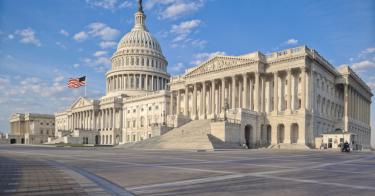Hopes for real financial regulation reform in 2017 pretty much evaporated this week as the Senate decided to focus solely on tax reform. Given the importance of a policy victory, especially in the wake of the Obamacare repeal fiasco, the singular focus on tax reform makes perfect sense.
Throwing something as controversial as repealing parts of Dodd-Frank into the reconciliation process could sink tax reform, and losing that battle is simply not an option right now.
Still, it is hard to imagine that if the roles were reversed, liberals would give up so easily.
Would they start down the road to victory, only to retreat before even extracting any sort of success or making a strong statement? (Earlier drafts of the budget resolution included the necessary instructions for the Banking Committee to find savings; they’ve disappeared from the resolution.)
Would they fracture or stay unified? Would they hesitate to use the Congressional Review Act to stop the Consumer Financial Protection Board’s arbitration rule?
Regardless, Americans lose because conservatives are not unified in rolling back the Dodd-Frank Act. Given the circumstances, that’s rather bizarre.
Dodd-Frank became law during the Obama presidency, when Nancy Pelosi (D-Calif.) led the House of Representatives and Harry Reid (D-Nev.) presided over a near filibuster-proof Senate majority. It was a partisan bill that garnered no Republican votes in the House and just three in the Senate.
It was largely a progressive wish-list of policies that failed to fix what caused the financial crisis. Based on the demonstrably false notion that deregulation caused the financial crisis, it wound up enshrining “too-big-to-fail” into law.
This piece originally appeared in Forbes



